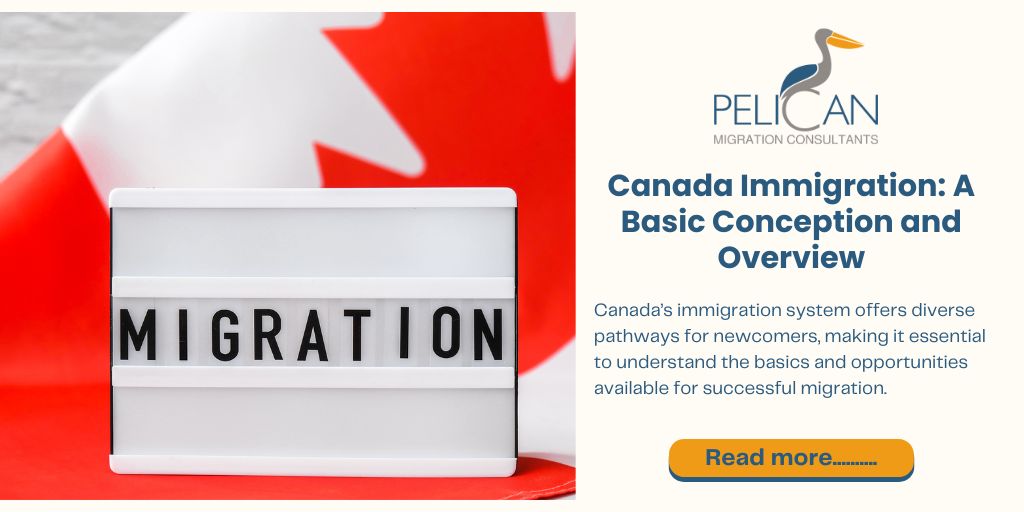
Canada stands as a beacon of opportunity for individuals seeking new beginnings and a better quality of life. Known for its robust economy, diverse culture, and welcoming communities, Canada immigration system is widely regarded as one of the best in the world. Each year, the country opens its doors to millions of visitors, students, and workers, while also granting permanent residency to over 300,000 newcomers. This blog will provide a comprehensive overview of Canada’s immigration system, highlighting the various pathways available, the application process, and the essential documentation required.
Understanding Canada’s Immigration System
Canada immigration system is structured to facilitate the entry of individuals from around the globe while ensuring a rigorous evaluation process. While the country welcomes newcomers, it also maintains strict guidelines to determine eligibility for those seeking permanent residency.
For instance, individuals entering Canada irregularly, such as through unauthorized border crossings, may find themselves intercepted by authorities and subjected to thorough assessments of their refugee claims. This includes extensive background and security checks to determine if they genuinely require Canada’s protection. It is crucial to understand that the path to permanent residency is not guaranteed; if a claim is rejected, individuals may face removal from the country.
Despite these challenges, Canada provides legitimate avenues for people to visit, study, work, or settle permanently.
Pathways to Permanent Residency
Canada immigration landscape can be broadly categorized into three main pathways: economic immigration, family reunification, and humanitarian considerations.
1. Economic Immigration:
Most newcomers achieve permanent residency through Canada’s economic immigration programs. The key pathways include:
- Express Entry: This points-based system assesses candidates based on language skills, education, work experience, and other factors. High-scoring candidates are invited to apply for permanent residency every two weeks.
- Provincial Nominee Program (PNP): Provinces (except Quebec) have the autonomy to nominate immigrants who meet specific labor market needs, helping to fill skill gaps in their regions.
- Quebec-Selected Skilled Workers: Quebec manages its immigration process, selecting skilled workers based on its unique criteria.
- Start-up Visa Program: This program allows entrepreneurs with innovative business ideas and backing from Canadian investors to obtain permanent residency and launch their ventures.
- Caregiver Program: Individuals providing in-home care to children or individuals with high medical needs can apply for permanent residency after gaining relevant work experience in Canada.
2. Family Reunification:
Canadian citizens and permanent residents can sponsor their loved ones, such as spouses, dependent children, and parents, to join them in Canada, promoting family unity and support.
3. Humanitarian Considerations:
Canada has a proud tradition of resettling refugees and providing asylum to those facing persecution. Eligible claimants may live in Canada while their cases are reviewed, although rejected claims can lead to removal.
Temporary Immigration Opportunities
In addition to pathways for permanent residency, Canada offers various temporary immigration options for individuals wishing to visit, work, or study:
- International Students: Canada is home to over 400,000 international students. The country’s educational institutions are known for their high standards, and many students can gain valuable work experience during their studies. After graduation, they can apply for work permits to continue building their careers in Canada, often leading to permanent residency.
- Temporary Foreign Worker Program: This program allows employers who cannot find Canadian candidates to hire foreign workers for various job positions, helping to address labor shortages in critical sectors.
- International Mobility Program: Some professionals, such as researchers and skilled workers, can be hired without a labor market impact assessment, making the process quicker and more accessible.
- International Experience Canada: Young individuals from partner countries can participate in working holidays or internships, gaining experience while exploring Canada.
Essential Documentation for Immigration
Navigating the Canada immigration process can be complex, and having the right documentation is crucial for a successful application. The required documents can vary depending on the specific immigration program and the applicant’s individual circumstances. For those applying through the Express Entry system, here is a detailed overview of the key documents needed:
1. Personal Documents:
Personal identification documents are fundamental to establishing your identity. Key documents include:
- Passport: A valid passport is necessary for travel and identification. Ensure that it is up-to-date and contains sufficient blank pages for visa stamps.
- Birth Certificate: This document helps verify your date of birth and parentage.
- Other Identification: Additional IDs, such as a national identity card or driver's license, may be required to provide further identification.
2. Language Proficiency:
Proficiency in English or French is critical for Canadian immigration, as it impacts your Express Entry points. You’ll need to:
- Language Test Results: Candidates must take a recognized language proficiency test, such as the IELTS (International English Language Testing System) for English or the TEF (Test d'évaluation de français) for French. Achieving a high score can significantly enhance your ranking in the Express Entry pool.
3. Education Credentials:
Your educational background is vital for demonstrating your qualifications and skills. Required documents include:
- Proof of Canadian Education: If you completed your education in Canada, provide transcripts and diplomas.
- Educational Credential Assessment (ECA): For degrees obtained outside of Canada, you must have your educational credentials assessed by an approved organization to confirm their equivalence to Canadian standards. The ECA report is essential for scoring points in the Comprehensive Ranking System (CRS).
4. Work Experience:
Relevant work experience plays a crucial role in your eligibility and ranking. Essential documents include:
- Reference Letters: Obtain letters from previous employers detailing your job title, responsibilities, duration of employment, and salary. These letters must be on company letterhead and signed.
- Employment Contracts: Provide copies of contracts that outline your roles and responsibilities.
- Proof of Previous Work Experience: This may include pay stubs, tax documents, or other official records confirming your employment history.
5. Financial Evidence:
Applicants must demonstrate that they have sufficient funds to support themselves and any accompanying family members upon arrival in Canada. Required documents include:
- Bank Statements: Recent statements showing your account balances and transaction history to prove you have the necessary funds.
- Proof of Assets: Documents showing ownership of assets, such as property deeds, investment statements, or other financial resources that can support your settlement in Canada.
6. Medical and Police Clearances:
To ensure the safety and health of Canadian citizens, immigration applicants must undergo certain checks:
- Health Assessments: A medical examination by a panel physician approved by the Canadian government is necessary. This exam evaluates your overall health and identifies any potential public health risks.
- Police Clearance Certificates: These certificates from your country of residence (and any other countries where you have lived for six months or more since age 18) confirm that you have no criminal record. This is essential for assessing your admissibility to Canada.
Conclusion
Canada Immigration offers a multitude of pathways for individuals seeking new opportunities and a better quality of life. Whether through economic programs, family reunification, or humanitarian efforts, the country remains committed to welcoming newcomers who can contribute to its vibrant society. While the process can be complex and requires careful preparation of essential documentation, understanding the various options available can significantly enhance your chances of success. As you embark on this journey, remember that Canada stands ready to provide a safe and prosperous environment for those looking to build their future in this diverse and dynamic nation. For any assistance with Canada’s Immigration, connect with Pelican Migration Consultants to help navigate your path to success.


